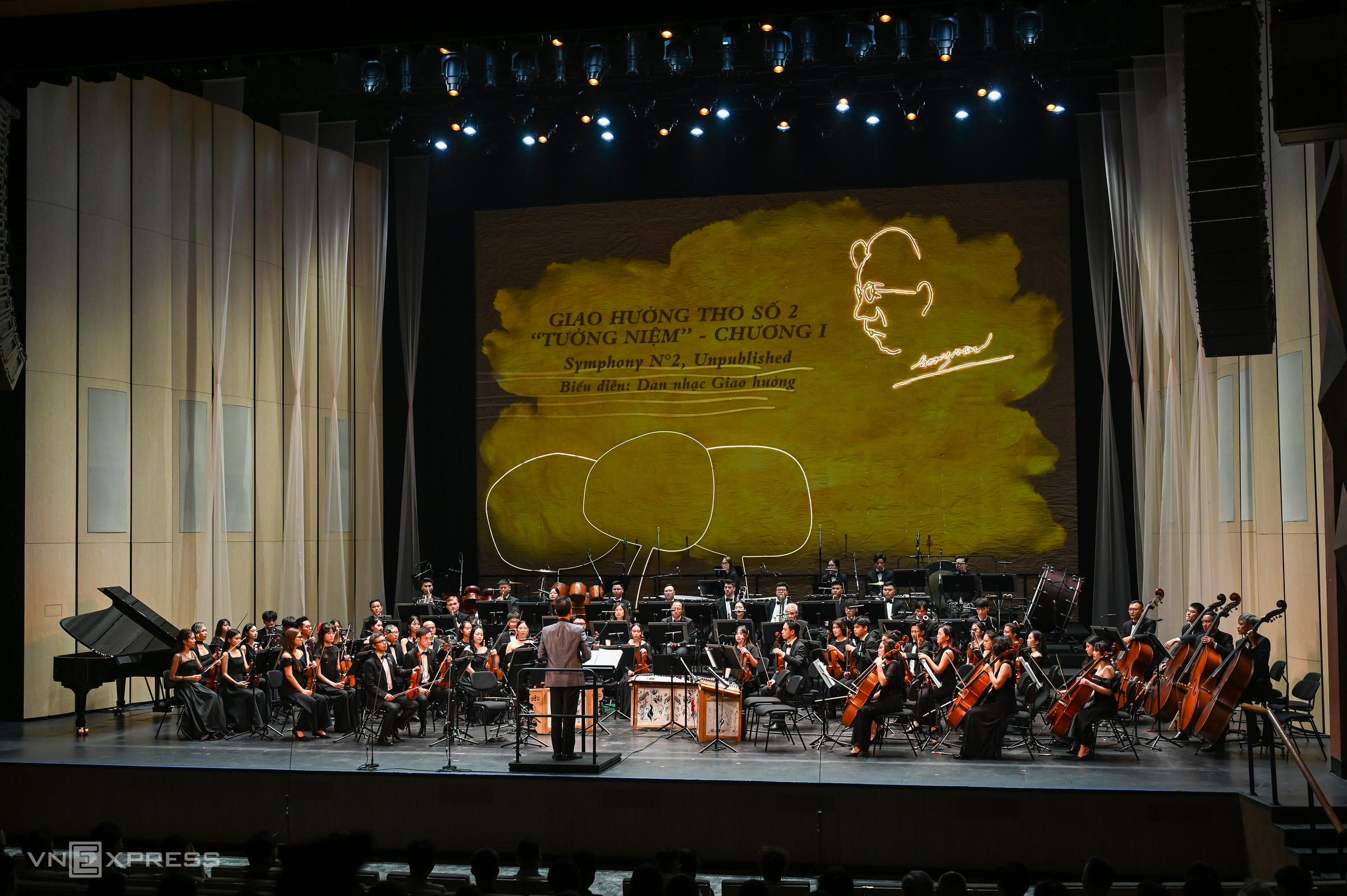 |
The concert, titled "For Generations to Come", took place on 25/7 and was inspired by a phrase from the musical suite "Construction Song" (1973), alluding to the enduring vitality of Hoang Van's music. His daughter, Dr. Le Y Linh, wrote the script.
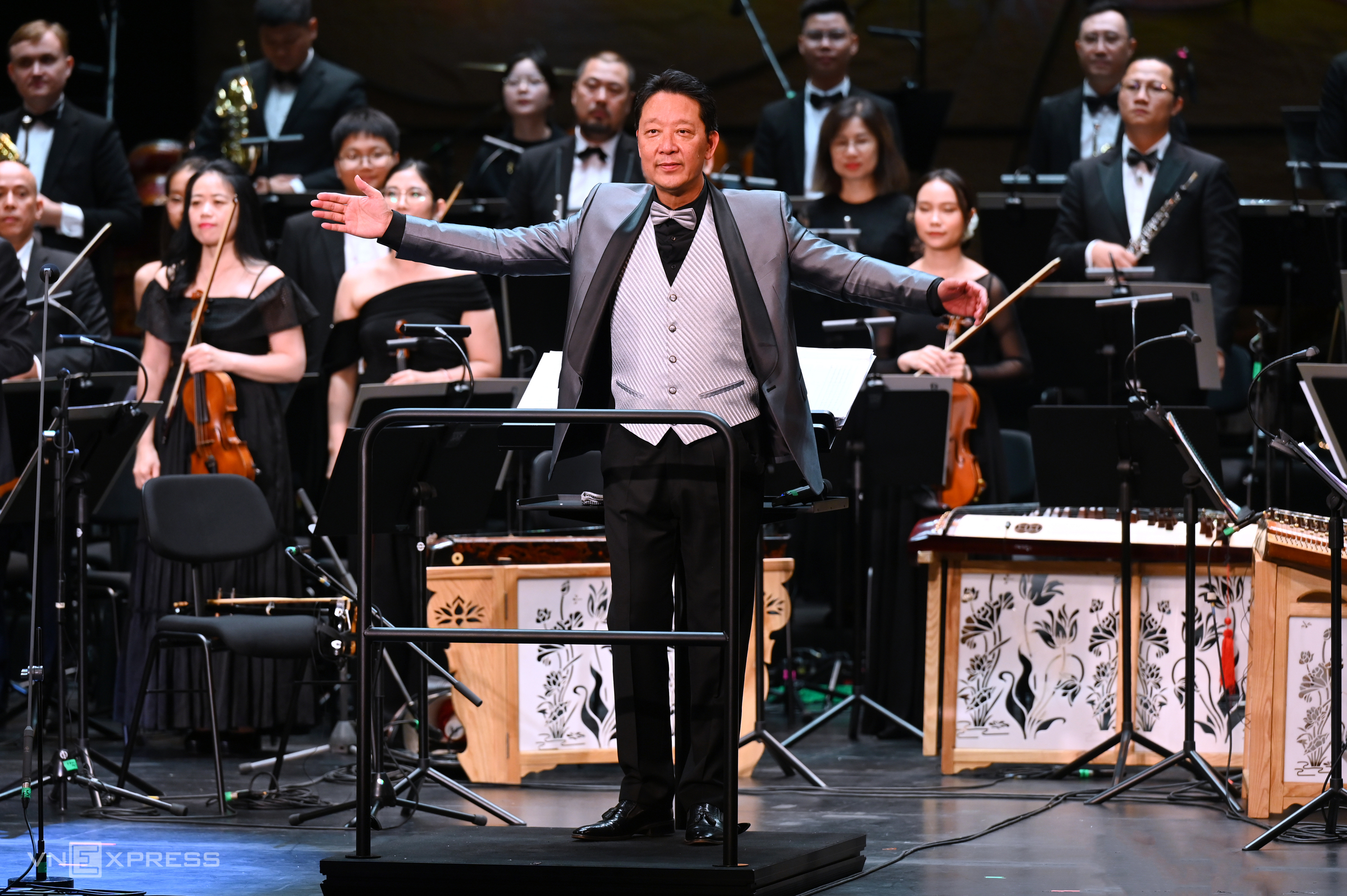 |
Conductor Le Phi Phi, son of Hoang Van, oversaw the music and conducted the program. He devoted significant effort to restoring many of his father's works to their original versions. The artist maintained high energy, leading the chorus and orchestras.
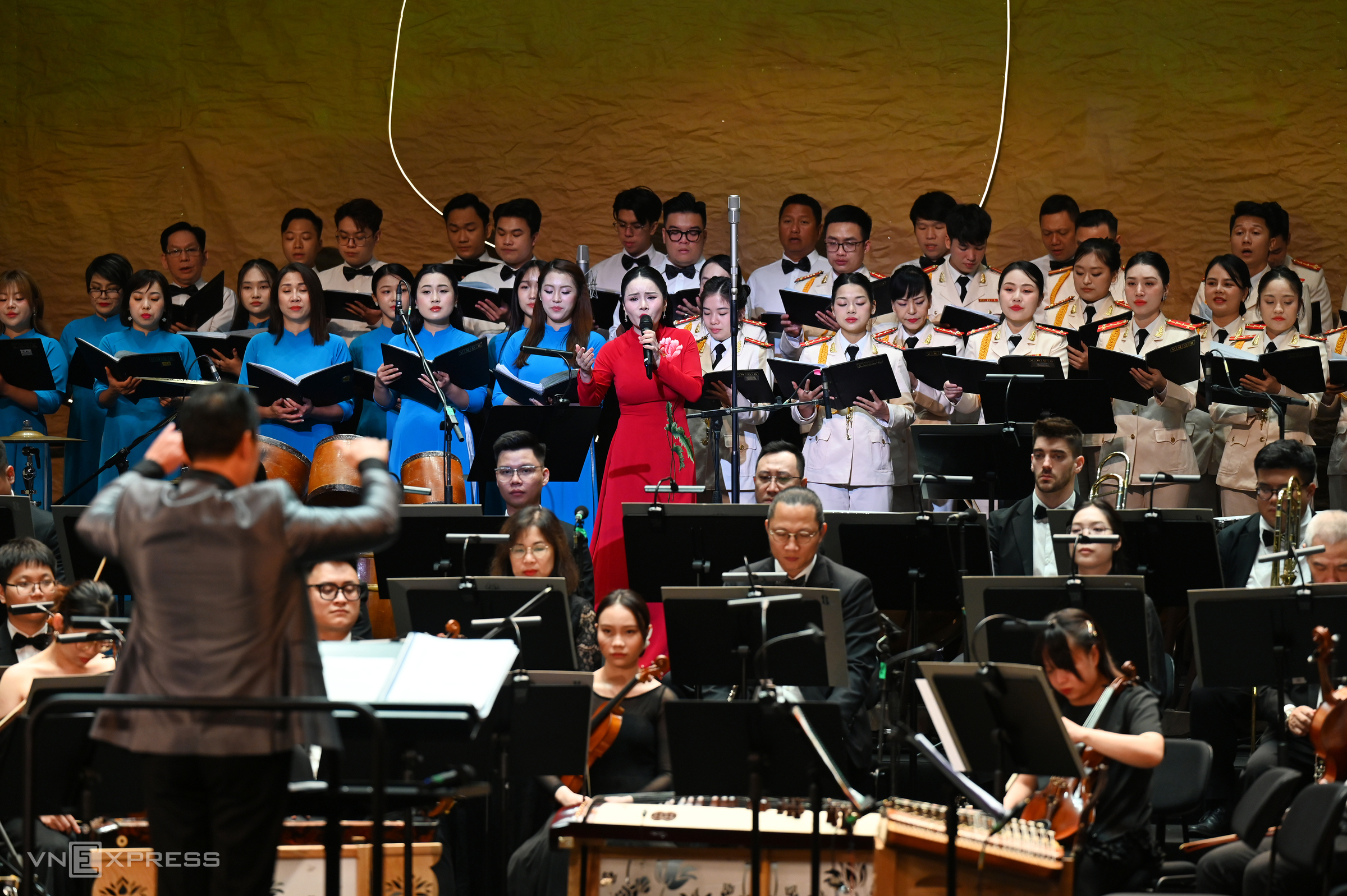 |
Over three hours, the program selectively showcased Hoang Van's musical portrait through instrumental pieces, choruses, songs, recordings, and scores preserved by his family for over half a century. In the first part, titled "Remembrance," his music evoked the nation's ups and downs through two wars.
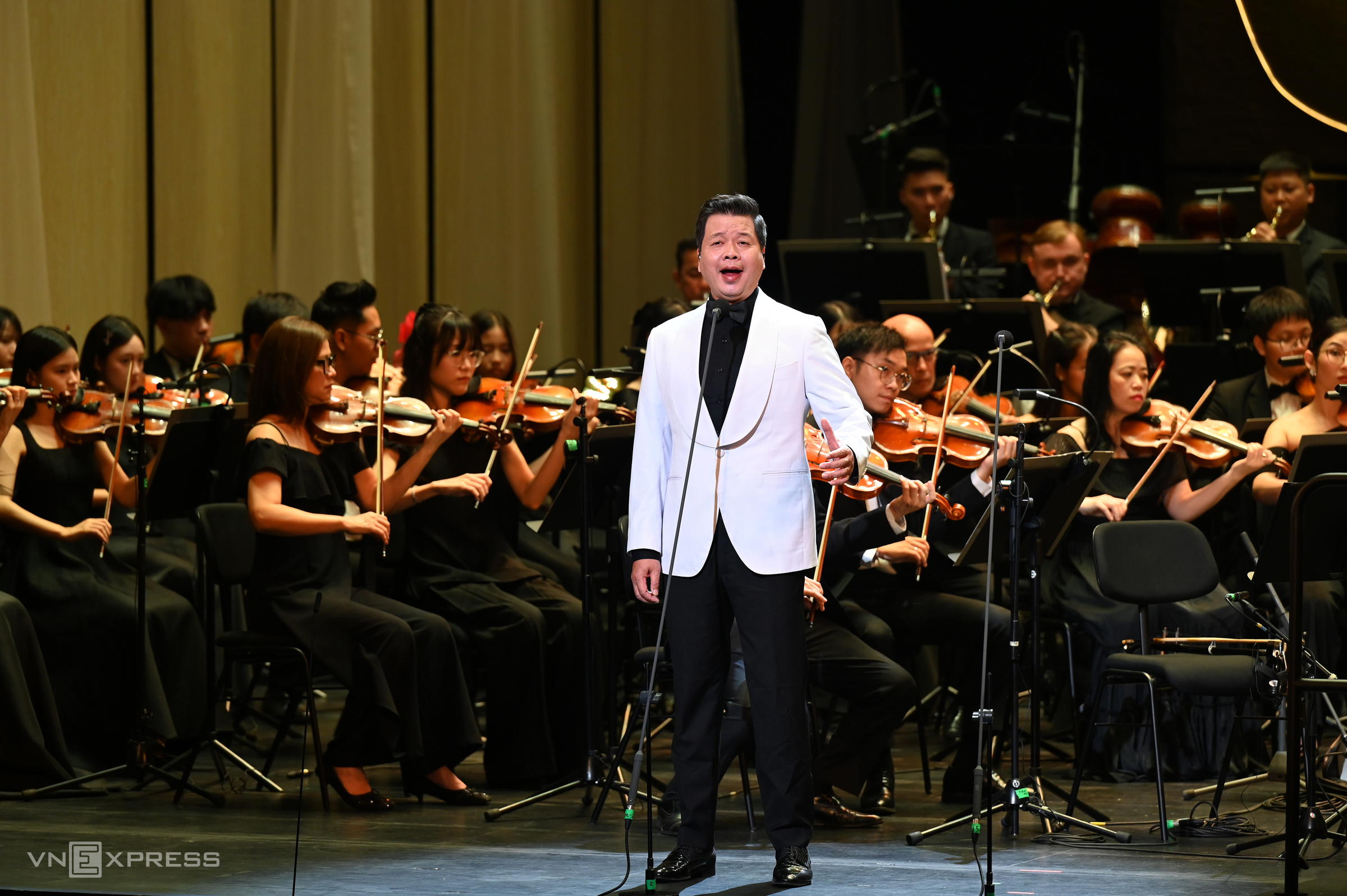 |
Artist Dang Duong sang "I Am a Miner," a piece considered the traditional anthem of the coal industry. Throughout his career, Hoang Van composed songs about various professions, earning him the title of the "voice" of these fields. Through his lyrics, female workers, engineers, and farmers come to life, all enthusiastically working to build their homeland. Some of his other famous songs celebrating professions include "Song of the People's Teacher," "Construction Song," and "Singing About Today's Rice."
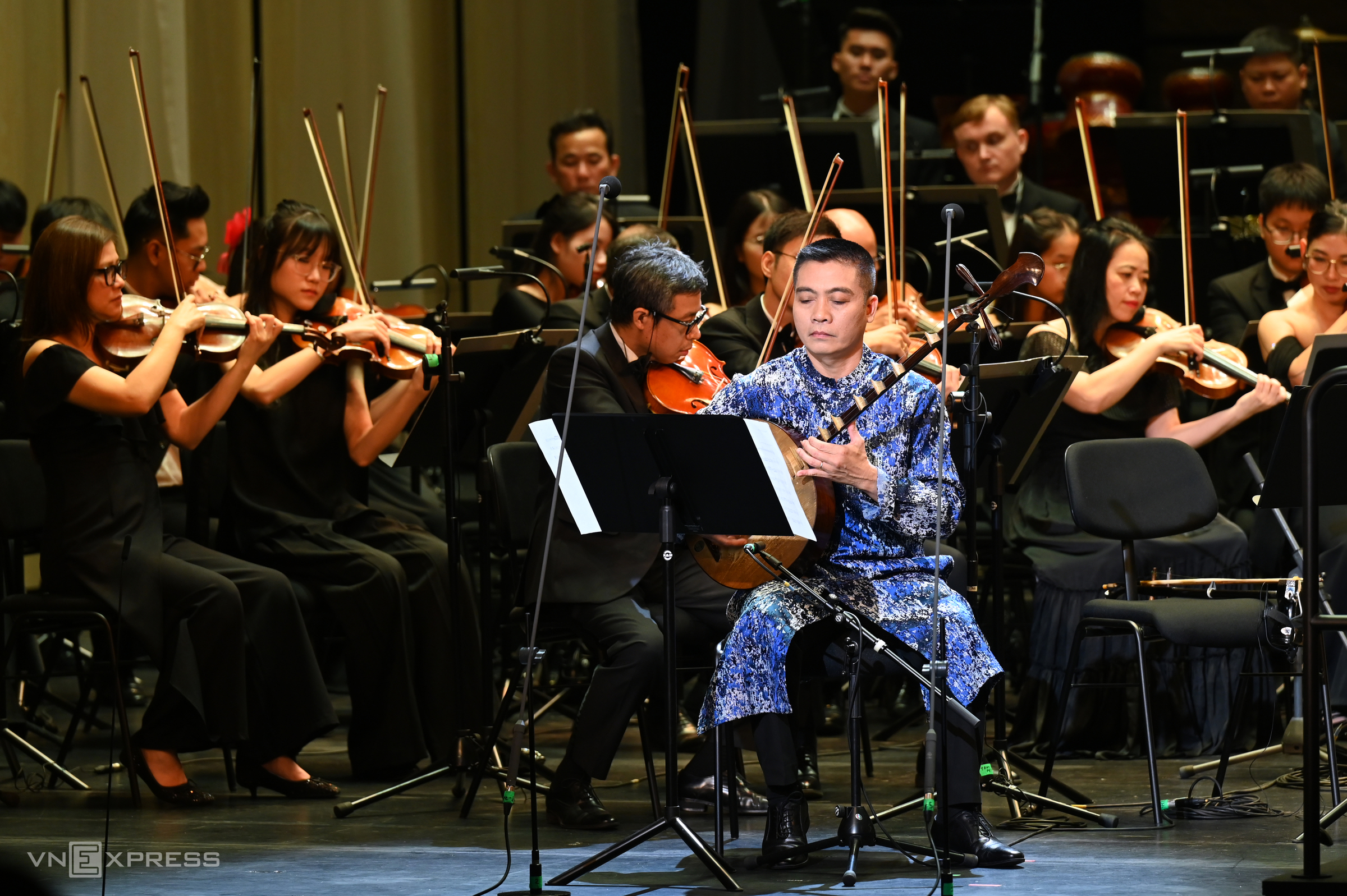 |
Moon lute artist Co Huy Hung collaborated with the symphony orchestra to perform "Quang Binh, My Homeland." The song evokes the Ho Le Thuy folk tune of Quang Binh province, combined with the folk essence of the northern delta. Composed in 1964, when the US Air Force began its first large-scale attacks on North Vietnam, the song was inspired by Hoang Van's firsthand experience of the urgent atmosphere of combat and reconstruction during his visit to the front lines of Quang Binh. It was also a favorite song of General Vo Nguyen Giap, a native of Le Thuy, Quang Binh.
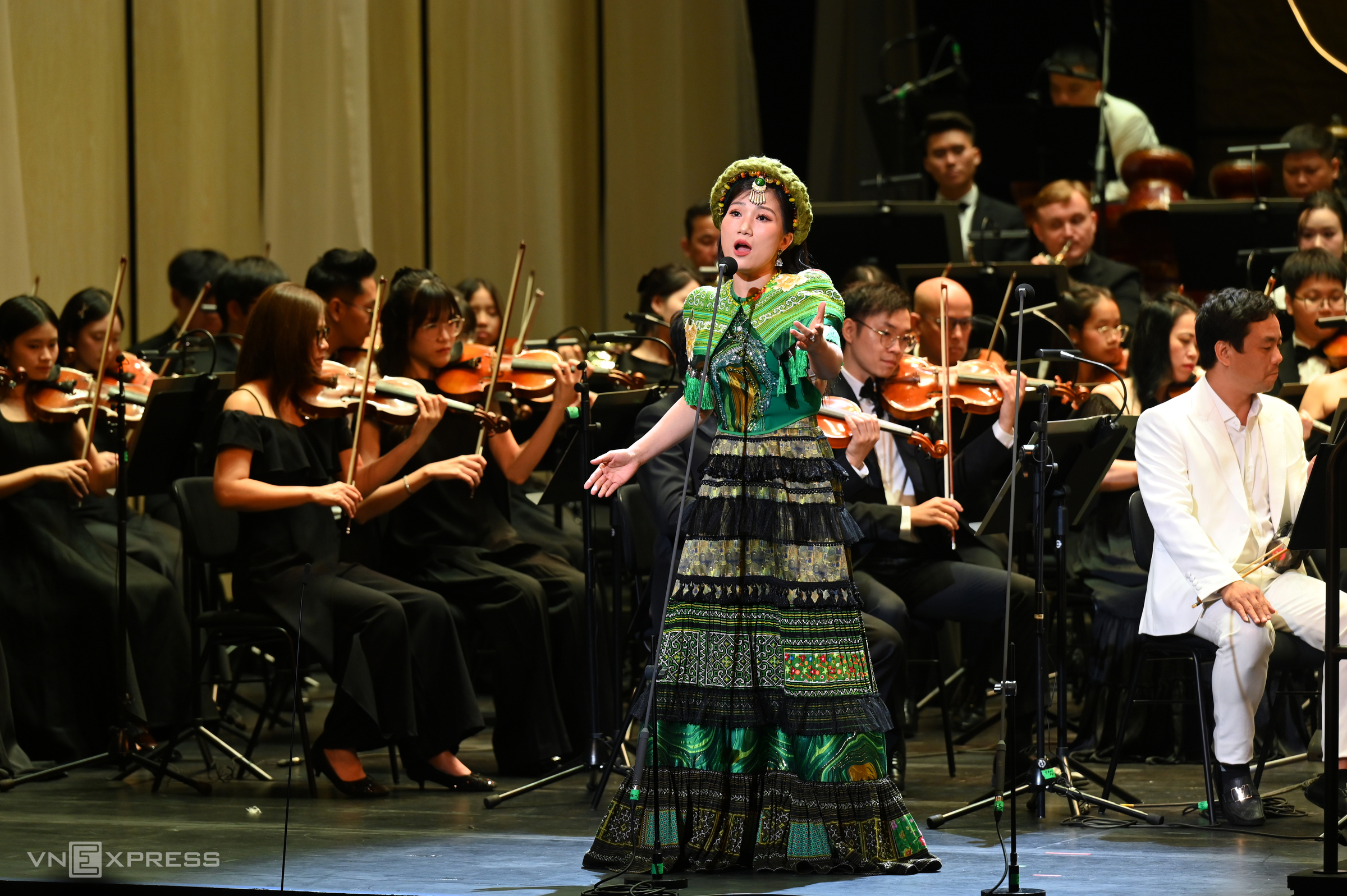 |
Singer Tran Trang performed "Beat the Drums, O Mountains." Hoang Van's music blends the rustic melodies of various regions with a sophisticated, academic touch.
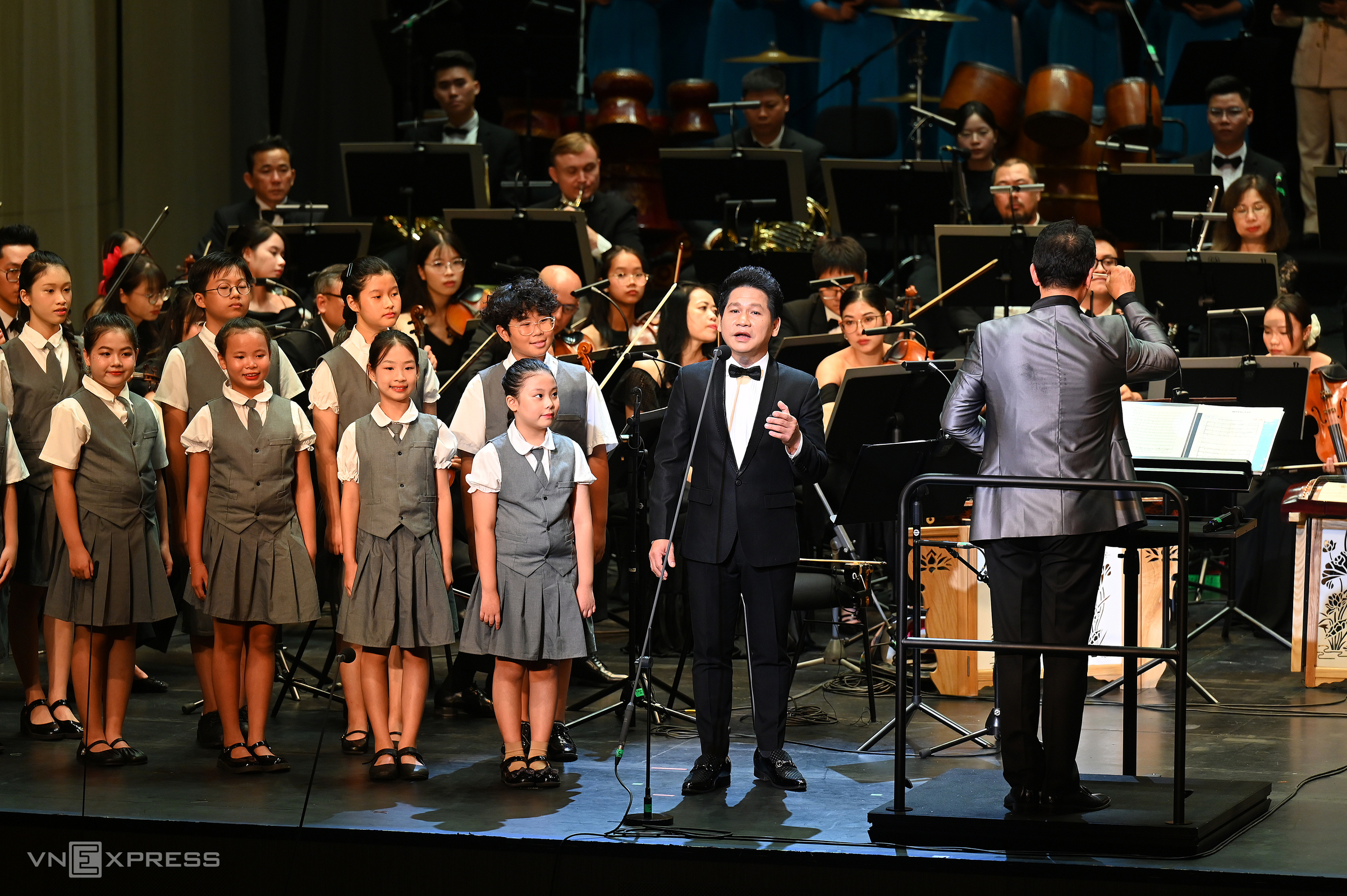 |
Singer Trong Tan led the "Reminiscence" suite, featuring songs like "I Love My School," "Reminiscence," and "Together We Go, Young Soldiers" (by composer Dinh Nhu).
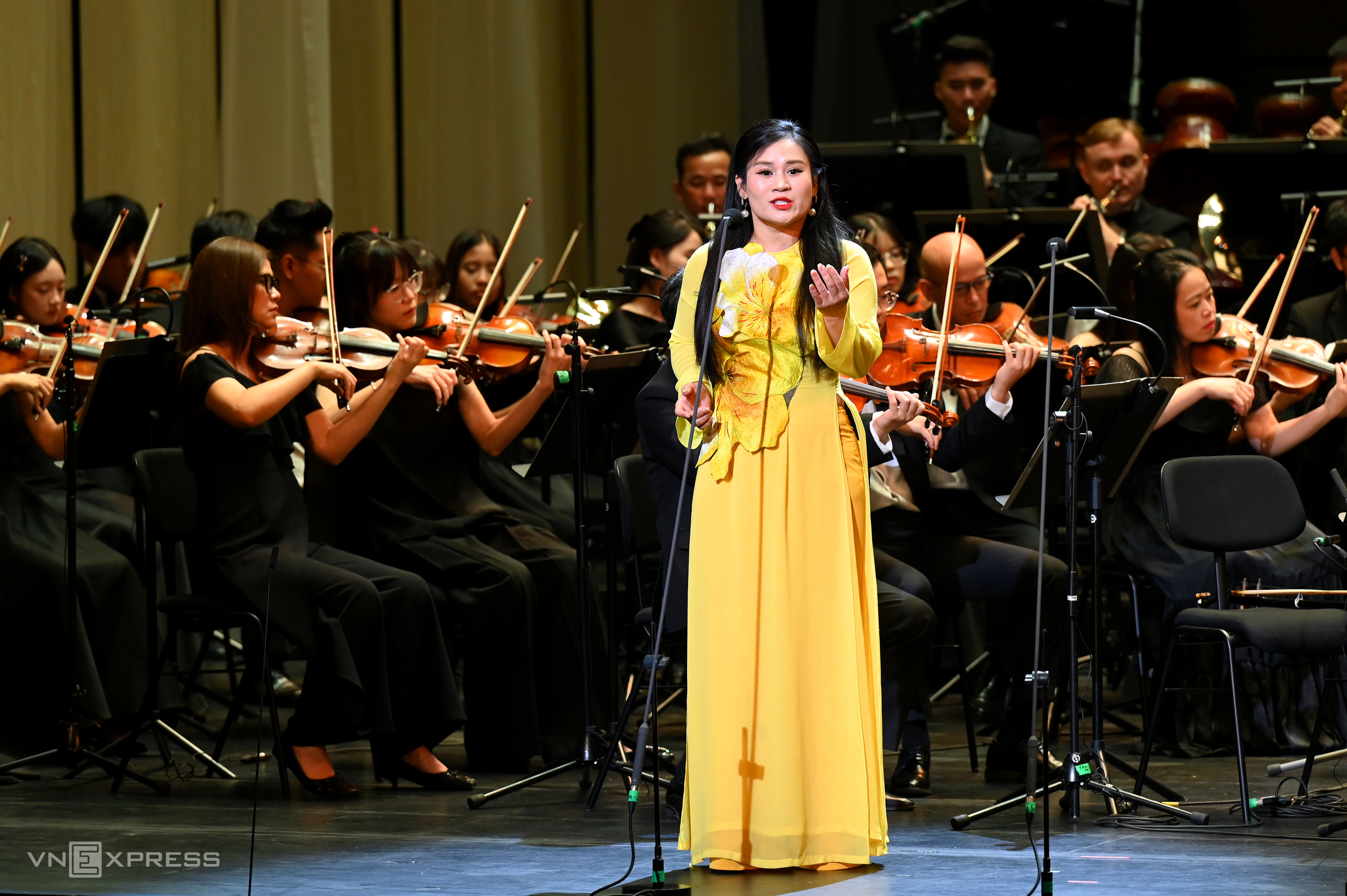 |
The program also featured love songs such as "Sailor's Feelings" and "A Peaceful Flower for You." Writer Tran Thi Truong said, "I am happy to have enjoyed this artistic program showcasing the legacy of Hoang Van – a man who wrote the history of the Vietnamese revolution through classical music that resonated with all social classes. The conductor, musicians, and artists delivered a beautiful feast of sound,".
Hoang Van (1930-2018), born in Hanoi to a scholarly family, studied at the Beijing Conservatory of Music, China. Upon returning to Vietnam, he conducted orchestras, directed the music ensemble of the Voice of Vietnam radio station, and taught composition and orchestration at the Hanoi Conservatory of Music until 1989. He began composing in 1951 with songs widely popular in the Northwest and Northeast regions, such as "Hoa Binh Victory," "Victory News," and "Northwest Victory." In 1954, he composed the famous song "Cannon Pulling Chant." From then on, his composing career flourished with numerous songs, choruses, and orchestral pieces. He also wrote music for films, plays, cheo (traditional opera), and cai luong (reformed opera). He was awarded the Ho Chi Minh Prize for Literature and Art in 2000. In April of this year, Hoang Van's collection of over 700 songs was recognized by UNESCO as a world documentary heritage.
Ha Thu - Giang Huy












